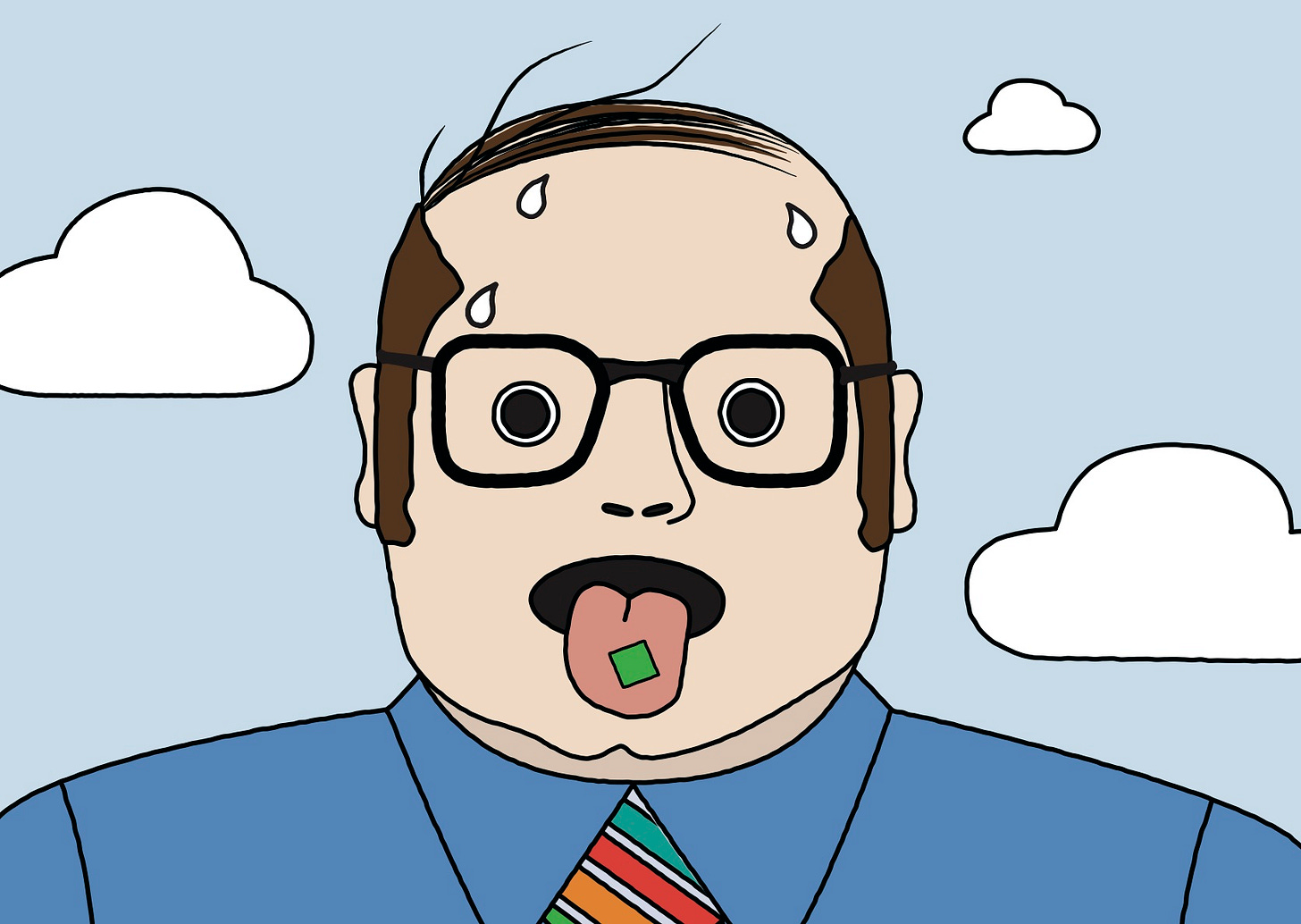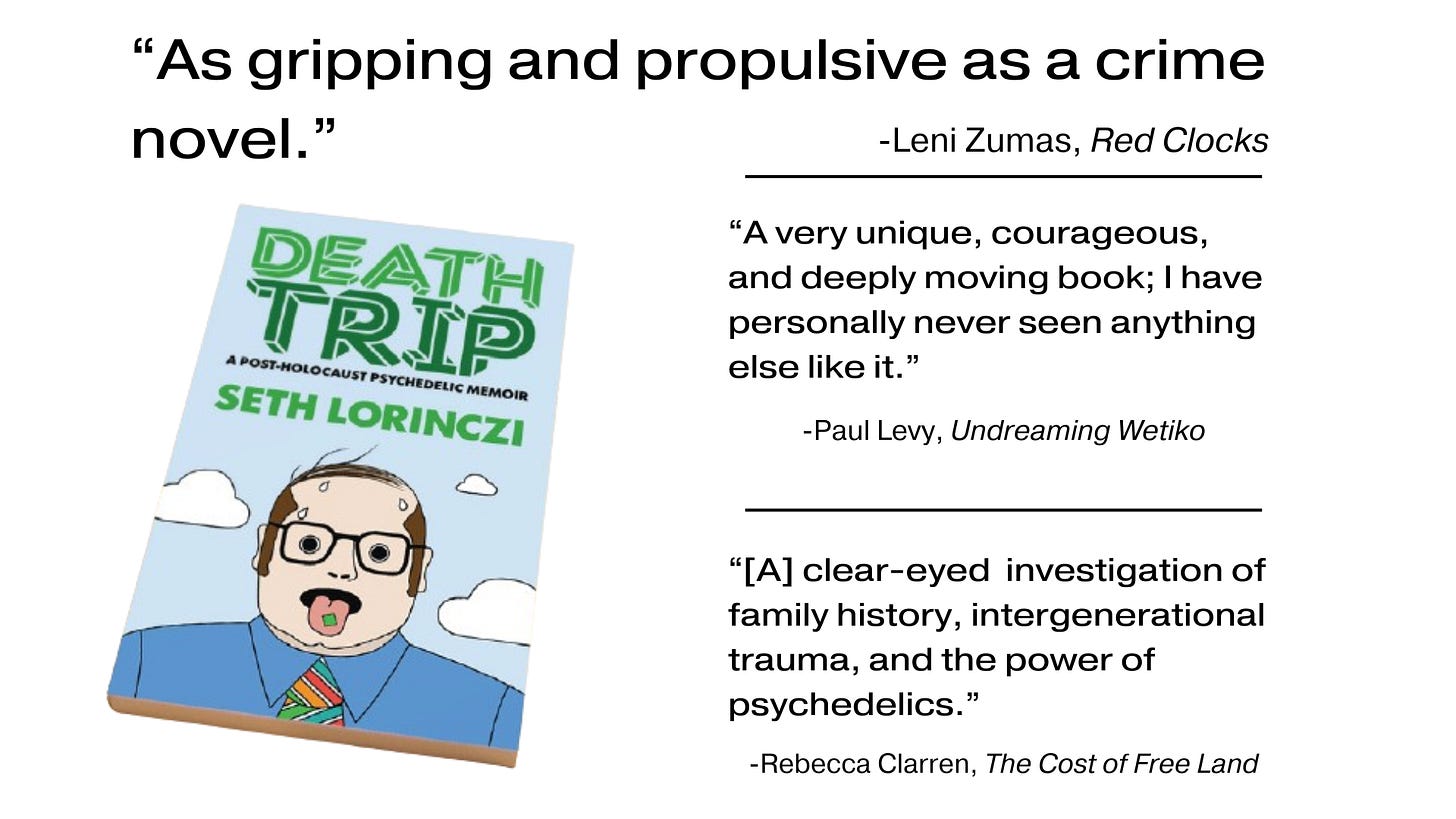Death Trip: A Post-Holocaust Psychedelic Memoir
Headed for divorce, my wife and I tried a Hail Mary: psychedelic therapy. Let's just say things got a lot trippier than I'd planned.
A few years ago, things weren’t looking too good for me.
I was in my mid-40s, married with a kid, but nothing was working. Not my marriage or my “career”—barely scraping by writing music for ads and short films. I was spending most of my time alone, and I felt hopeless. As my wife and I burned through our savings and I burned through her patience, we decided the best thing to do would be to divorce. So we found a therapist to figure out how to go about separating. As it turned out, she had what you might call an unusual approach. After a couple of inconclusive sessions, she threw us a curveball:
What about trying one under the influence of MDMA?
We did and, well…that’s when it got weird. Though I’ll risk a spoiler: We’re still married. But before then, I wasn’t aware of the idea of ancestral or “intergenerational” trauma. Some people think it doesn’t exist; others believe it’s the core wound of all humanity. What it meant to me was I started to wonder if the fact I’d been raised by Holocaust survivors might be playing a role in how I engaged with—rather, didn’t engage with—my own life. Maybe not only the way they’d raised me but their own traumatic experiences were affecting how I related to the world.
But I barely knew what those experiences were—and there was no one left to ask. If I wanted to understand where I’d come from (and what that backstory was doing to me), I’d need to find some other way. And I did. For a couple of years there, the quest to unearth my family’s buried secrets kind of took over my life. Eventually, it would lead me halfway around the world to Hungary—and an epic showdown with their ghosts.
I’ll save the rest for the book—which I very much hope you read and buy multiple copies of, by the way. But I want to say one more thing. My family may have been Holocaust survivors, but ancestral trauma isn’t a Jewish story: It’s a human one, about facing where we came from so that we don’t just repeat the past. One of the most surprising (and gratifying) side-effects of publishing Death Trip: A Post-Holocaust Psychedelic Memoir is reading the many notes from readers. Over and over again, people tell me they see themselves in this story, too.
You can find Death Trip wherever fine books are sold—though from my perspective, buying it direct from the publisher is the best way to purchase it. I’d love for you to read it and tell me if you see pieces of yourself in it, too.





You sold me. Can’t wait to read your book. I wanted to send you a pic from the last place I did psychedelics (Oof was that a sacred combination!) but it looks like I can’t send it here. Ah well.